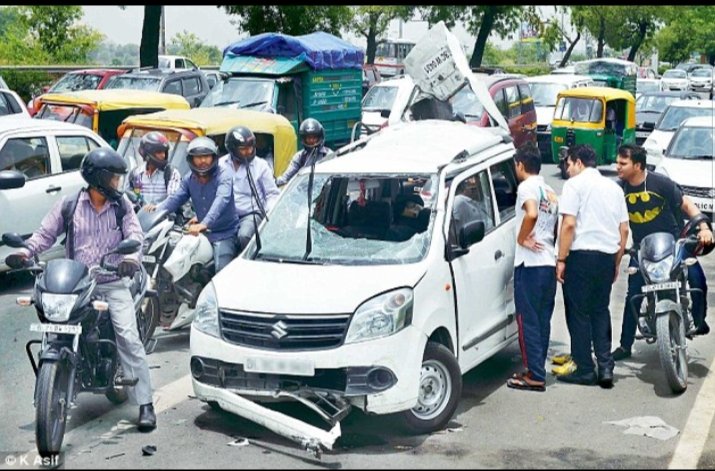Key points:
- The Motor Vehicles (Amendment) Act, 2019, inserted a new section 134A, named “Protection of good Samaritans” which provides that a Good Samaritan shall not be liable for any civil or criminal action for any injury to or death of the victim of an accident.
- If a person has voluntarily agreed to become a witness in the case in which he has acted as a Good Samaritan, he shall be examined in accordance with the provisions of the new law.
- India witnesses around 1.5 lakh deaths due to road accidents which are highest in the world.
The Ministry of Road Transport and Highways has released the rules for the protection of Good Samaritans.
A Good Samaritan is a person who, in good faith, without expectation of payment or reward and without any duty of care or special relationship, voluntarily comes forward to administer immediate assistance or emergency care to a person injured in an accident, or crash, or emergency medical condition, or emergency situation.
As per the amended rules, “Protection of good Samaritans which provides that a Good Samaritan shall not be liable for any civil or criminal action for any injury to or death of the victim of an accident involving a motor vehicle, where such injury or death resulted from the Good Samaritan’s negligence in acting or failing to act while rendering emergency medical or non-medical care or assistance and that the Central Government may by rules provide for the procedure for questioning or examination of the Good Samaritan, disclosure of personal information of the Good Samaritan and such other related matters.”
The rules provide for the rights of Good Samaritan which include that a good samaritan shall have the rights as detailed in the rules and shall be treated respectfully without any discrimination on the grounds of religion, nationality, caste, or sex, the ministry said in a statement on Thursday (1 October).
No police officer or any other person shall compel a Good Samaritan to disclose his/her name, identity, address, or any other personal details. However, he may voluntarily choose to disclose the same, the ministry said.
The Rules also provide that every public and the private hospital shall publish a charter in Hindi, English, and vernacular language, at the entrance or other conspicuous location, and on their website, stating the rights of Good Samaritans under the Act and the Rules made thereunder.
Further, if a person has voluntarily agreed to become a witness in the case in which he has acted as a Good Samaritan, he shall be examined in accordance with the provisions of this rule, for which detailed guidelines and process has been mentioned in the rules, it added

